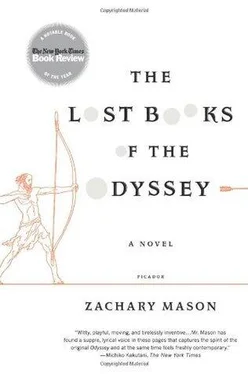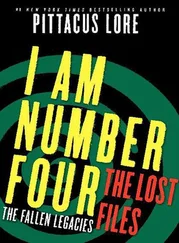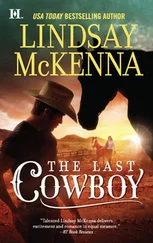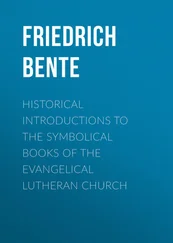There is a silence in desolate places that is terrible for a man too long away from home and it was waiting for Odysseus in Ithaca Town. No human voices there, no smoke of fires, no creak of wagons. Grass grew in the street and a thin, feral cow regarded him suspiciously while browsing on deadfalls in a fig orchard. The master mariner thought, “Caution. Who knows what mischief befell this town and what mischief is left? After all these years coming back don’t go rushing in like a puppy.” So he left the road and went up onto a hill overlooking the town, concealed himself among the trees next to a hut that had once been the swineherd’s and settled in to watch. All afternoon there was only stillness and birdsong and several times he caught himself dozing.
Night fell. A bright, full moon rose and illuminated the flawless, static island. There was not even a breath of wind. In the night’s last hours Odysseus stole down through the trees toward his house. Irresistibly reminded of his night-time forays into Troy, where at least there had been a friendly army to retreat to, he slipped through the open-hanging gate of his courtyard, hand on the hilt of his sword.
Within, nothing. Moss on the dung-heap and disintegrating potsherds. A dog’s verdigrised brass collar clanked underfoot. The house was cold and still. As he crept down a corridor, he looked back, saw his footprints in the dust and desiccated leaves, and discarded stealth.
Odysseus murmured to himself, “There are only so many possibilities. The town could have been wiped out in an attack. There could have been a mass emigration — to avoid raiders, for instance. There could have been a sickness. Each of these possibilities entails certain signs. Every event is the cause of myriad effects and it is effectively impossible that a disaster of this magnitude could have swept all the people away and left no record of the manner of their passing. The world is a fundamentally orderly place, never impervious to reason. I will look until I find this record and read it and know what came to pass here.”
He searched the house in earnest for the marks of recent history. In one storeroom he found an amphora of sweet wine he thought he had laid down himself. In another he found a cobwebbed pile of weapons and armor. Altogether, he found:
an orange coral hairpin
a broken loom
an empty, undecorated quiver
a broken stick of incense, still fragrant when he turned it in his fingers
a clay washbasin
He went into the dimness of the great hall. It was a wreck — tables overturned and broken, shattered bowls, a foot-bath. He kicked an ancient, desiccated cow’s hoof. Arrows stuck in the wall here and there, but when he tried to pull them out they crumbled. The aftermath of a battle? The shafts were embedded in just one wall — an archery contest? Idle vandals? He found his great bronze bow lying under some chairs, streaked with green but as strong and supple as ever. This he kept, having missed it many times on the field at Troy and in his wandering.
He left the house and walked among the outbuildings. The sky was beginning to glow. Ropes were strung between the roof of the roundhouse and the corral. *The garden was in a sad state of neglect and the fences were falling down. He resisted an impulse to forget his search and start setting things right.
The sun rose and in the forgiving early light he could almost pretend that his house was not abandoned but still a living place. He went into the cellar, which he had been postponing. Picking his way over toppled, broken jars, he found an intact iron-bound chest shoved into a corner. At last, an answer. He forced the lock with his sword. Within the chest were a funeral shroud, belt buckles, a length of fine linen, and a sack of bronze nails.
That morning he found an abandoned boat and left the island, swearing to come back one day with answers.
*This is where the maids who had lain with the suitors were hanged to death by Odysseus, Eumaios and Telemachus after the suitors’ slaughter in the standard version of the Odyssey.
36. A MOTE IN OCEANIC DARKNESS
Waterlogged, frozen, exhausted, Odysseus clung to a floatinag spar, dark waves surging over him. He could not help but think that this was happening to someone else, that someone, a stranger, was being consumed by the sea, was near drowning. His teeth had long since stopped chattering when a were-light appeared on the waters and his mind went from pain and dullness to clarity — Pallas Athena was with him. He said, Goddess, who are you, to find me and bear me up when I am lost in the waste? In the sudden stillness she said:
Water flowing through pipes, pouring into unlit reservoirs there to eddy in silence. Runes of ephemeral fire. A book of many pages written in inks that vanish and reappear. A twilight forest haunted by beasts, watchful and inquisitive. Steadfast of heroes. An onion, an ocean, a palimpsest, a staccato machine of oiled iron gears. These are among the metaphors with which I describe myself, like a hand trying to grasp itself by reaching into a mirror.
Midnight came and still Odysseus lay awake, in his own house again after twenty years. He lay under a pile of sheepskins in the portico, his gaze traveling round and round the once familiar walls as though they held some secret, the answer to his agony. He had come a long way to get there only to find his home had become an enemy camp and for a moment his heart failed him. Courage, he told himself — the cyclops, whose rage was like an avalanche, was worse than this. These are but men — boys, really — none of them seasoned in war, no three of whom I could not cut down in seconds, but there are close on fifty of them. How shall I kill them when I am only one? He wanted to walk past the suitors where they slept in the main hall and go to his own bed but knew it would be the death of him. Eventually his tears dried and he drifted close to sleep.
In the grey middle ground between dream and waking Athena appeared to him as she sometimes did and said, “Do not fear, wanderer. There could be fifty times fifty men such as these all baying for your blood and still you would triumph. Like me, you have the knack of stringing victory together out of whatever is at hand.” Odysseus replied, “It is a shame that the way of the Olympians is to help their protégés help themselves — if I thought you would slaughter them all for me I would indeed rest at ease. If you wish to do so, please proceed — do not stand on ceremony with so old a friend as me.” Athena laughed and went back to Olympus, but before she went she gave him a dream.
There was a sense of movement and of distant women whispering and Odysseus found a cloth in his hands which he immediately knew was the weave of fate. Its manifold complexities drew his eyes but Athena whispered in his ear not to be distracted, to look for the bright, strong thread of his own life, how it was interwoven with the threads of his wife and son, Menelaus and Helen, all the Trojans, Calypso and Circe, the isle of Ithaca. The suitors’ fates were slight things, just barely bound to the world. Myriad futures opened up before them but all were short and all ended bitter.
Odysseus woke bemused, feeling like a seer. He floated gracefully through the deception of the household, *watching himself as though he were an actor in a theater, immersing himself in the role of wandering beggar and studying his enemies with clear eyes. When things came to a head and the bronze bow was strung *he fired one arrow after another into the suitors’ chests with the utmost detachment — he had a vision of standing in the dewy corral in the hills above the house, streaming sweat in the late morning sun, sending arrow after arrow into the bole of the oak a hundred paces distant. Each time he nocked an arrow he could smell the wet grass and see the sun burning behind the oak leaves.
Читать дальше












